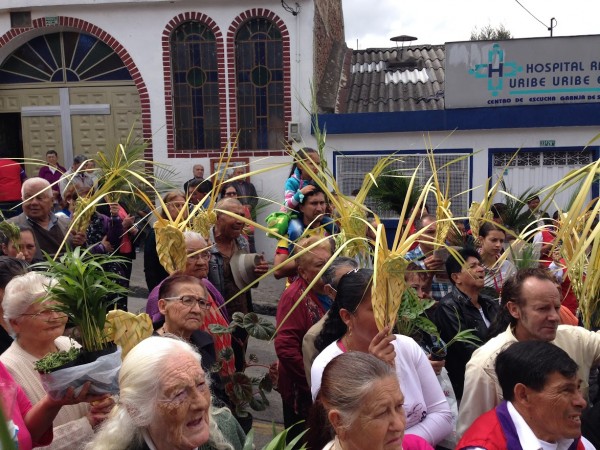
Today’s celebration, Palm Sunday, has a paradoxical nature. To begin Holy Week we gather in an open space, outside the church, and we bless palms and branches, remembering the crowd that received Jesus when he decided to enter Jerusalem riding a donkey. It is a festive moment. And yet, there is something gloomy and dark in these palms, in these branches: they identify the crowd that, even though that day welcomed the prophet of Nazareth with enthusiasm, a few days later contributed to his downfall by allowing itself to be manipulated by the authorities, demanding Jesus’ condemnation (as the reading of the Passion reminds us, during the Eucharist).
Palm Sunday, in short, puts a very serious matter on the table: the affirmation that the adherence to the project and the person of Jesus will always be, in the end, a deeply personal choice. You cannot be a Christian by osmosis, or because the person next to you is a believer, or because you were born in a society where the norm was to be baptized. Being part of a crowd that hails the Lord does not guarantee at all that I have actually assimilated the meaning of the Gospel. To sing songs of praise to Jesus in a stadium full of people where a huge Eucharist is being celebrated does not make of me a disciple, either. These can be stimulating and beautiful experiences, but they can never replace a much more personal and committed understanding of faith.
In fact, something that Palm Sunday underscores is precisely the danger of being in a crowd, which is the danger of ceasing to think for myself, and allowing myself to be carried away by the feelings of a passionate majority, whether in favor or against something or someone. Aldous Huxley, the famous author of Brave New World, pondered these matters in many of his works. In The Devils of Loudun (a lesser-known but no less extraordinary book he wrote) he states: «Being in a crowd is the best-known antidote to independent thought.»
Today we bless palms and branches, and we wave them in the air acclaiming Jesus. But it is good to remember that in them not everything is joy and celebration. There are also questions in them. If I had been in Jerusalem those days, what would I have done when, after hailing the Messiah, I would have seen him imprisoned in the hands of the authorities? Would my voice have joined those who asked for his death? Or would I have interceded for him, like Pilate’s wife, or would I have helped him carry the cross, like Simon of Cyrene? Do I follow Jesus because I am part of a crowd (volatile, with changing opinions) or as a result of a personal conviction, deeply matured and meditated in my own heart?









